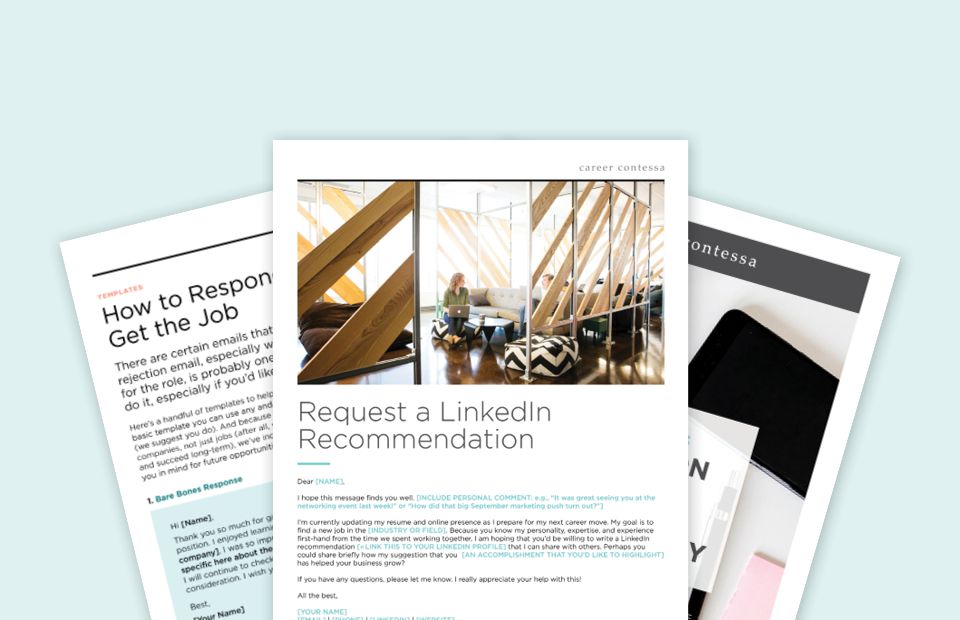It might feel like the elephant in the room, but it's more common than you might think.
Whether
you were laid off, furloughed, or fired, losing your job is rarely perceived as a point of pride. However, maybe losing your job awakened a dormant passion, led to serious growth, or had you re-evaluating your career path altogether.
You might see that six-month gap on
your resume as a big exclamation point, but it says very little about you. Really. We always say that the resume tells your future employer the "what". You can
use your cover letter and interview process to fill in the why, the how, and the who you are.
Suffice it to say; you are not some job you lost three years ago.
That's why we wanted to talk about explaining career loss or a
gap in employment in an interview setting.
How to Explain Job Loss in an Interview
In an interview setting, there's nothing worse than feeling like you showed up prepared only to be
stumped by one interview question. It's important to prepare and practice, especially when it comes to questions about job loss. If you are unprepared to answer this question, you can come off as cagey, unaware, or—in a worst-case scenario—dishonest.
Here's our best advice on explaining job loss in an interview.
1. Be Upfront About Your Job Loss
If you're familiar with
Murphy's Law, then you know intrinsically that the one question you don't want to answer
will be asked.
That's why our first piece of advice is not only to be prepared to answer questions about job loss in an interview but maybe be the one to bring it up in the first place. No, you don't need to walk in the room and address it right away, but you might apply your job loss story to a common interview question or a prompt like "
Tell me about a challenge you overcame."
If your job loss doesn't come up organically, then you may still want to bring it up, especially if you can couple it with a major "Aha! moment" or as the root cause of a major
career transition.
2. Come Prepared to Explain What You Learned from the Experience
Come to the interview with two very important Ps, Preparation and
Positivity.
Even if you feel strongly that you were let go from your last job in an unfair manner, the interview is not the place to unload all of that. Our advice is to always keep it positive in an interview setting.
If you were let go under shady or illegal-adjacent circumstances, don't use the interview setting to dish with your hiring manager. Rather, explain what you learned from the experience of being fired or let go. Explain how the company values where you are currently interviewing match your own values more closely to your previous place of employment—without disparaging anyone.
We sincerely believe that
we learn from our biggest mistakes and some of the more challenging circumstances we are thrown into. If you can explain how you turned a negative (being fired) into a positive (enrolling in a class to upskill and landing this amazing interview opportunity) then do it.
3. Gather Positive References Beforehand
Sometimes employers ask for references beforehand. Sometimes, they ask for them in the final stages of the interview. If you are particularly worried about your resume being marred with a short tenure at a company that (unfortunately) had to let you go, gather a reference from your former manager—whether or not you're asked to do so.
You might
ask for a reference in your exit interview or request one on LinkedIn. However, if you're still in communication with your former manager, consider reaching out to ask for a reference. Remember when they told you, "Please let me know if I can help you in the future"?
This is where you finally ask for that favor. If you can ask them to tailor their recommendation to the specific position, that will show even more effort and dedication.
4. Explain How You Used Your Time to Upskill or Reflect
We have teased this as our next piece of advice—and here it is.
First things first. We are not here to diminish job loss. It's an incredibly stressful time for many. When you're laid off or fired, it can feel extremely deflating and result in a serious blow to
your overall confidence. However, sometimes it can be so important to reframe loss as an opportunity.
Some of your favorite success stories have a middle arc where your hero protagonist takes a devastating blow—only to emerge on the top of an even higher peak.
If you were let go from a job that you hated, from an organization that didn't fit your values, or by a
boss you could not communicate with, your job loss might be a blessing. Briefly explain what you learned after being laid off or fired. It might be something personal about how you work. It could also be that skill you've been wanting to make the time to learn.
A few examples include:
- Reflections about your personal values
- Reflections about what sort of collaboration works for you versus what doesn't
- Knowledge about the type of leader you aspire to be
- A hard skill that feeds directly into your career aspirations
There's usually a silver lining to every lost job. Unearth your silver lining and let the interviewer know how you are a better employee because of it.
5. Keep it Brief (But Informational)
Yes, hello, it's your nerves again. They might want to babble on and on about why you lost your job. They might want to repeat specific elements of why it happened or whose fault it was. Ignore your nerves. You don't need to give a detailed story about your job loss. Keep it simple.
- Address the job loss
- Qualify the "why"
- Share what you've learned as a result
If you can distill your answer to three (or four) perfectly-crafted sentences, do so.
Example: In the interest of being upfront, I wanted to address my gap in employment in March 2020 through December of 2020. My organization was going through a tough restructuring as a result of COVID-19 and I was laid off with 60 percent of the organization. While I was crushed, this gap gave me the time and space to develop my design skills so that I could hopefully impress you with my portfolio.











